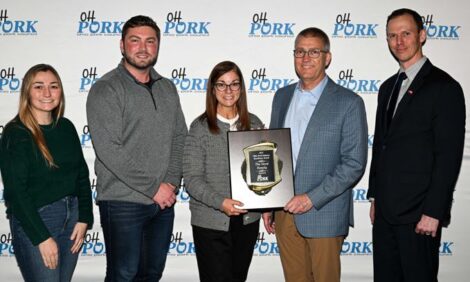



Recent Advances in Understanding the Pathogenesis of Lawsonia intracellularis Infections
A review of recent research on the pathogen causing proliferative enteropathy (ileitis) by scientists at the University of Minnesota.Proliferative enteropathy is an infectious disease caused by an obligate intracellular bacterium, Lawsonia intracellularis, according to F.A. Vannucci and C.J. Gebhart of the College of Veterinary Medicine at the University of Minnesota in a recent paper in Veterinary Pathology.
The condition is characterisd by thickening of the intestinal epithelium due to enterocyte proliferation. The disease is endemic in swine herds and has been occasionally reported in various other species. Furthermore, outbreaks among foals began to be reported on breeding farms worldwide within the past five years.
Cell proliferation is directly associated with bacterial infection and replication in the intestinal epithelium. As a result, mild to severe diarrhoea is the major clinical sign described in infected animals.
The dynamics of L. intracellularis infection in vitro and in vivo have been well characterised but little is known about the genetic basis for the pathogenesis or ecology of this organism.
The review by the St. Paul-based authors focuses on the recent advances regarding the pathogenesis and host-pathogen interaction of L. intracellularis infections.
Reference
Vannucci F.A. and C.J. Gebhart. 2014. Recent advances in understanding the pathogenesis of Lawsonia intracellularis infections. Veterinary Pathology. 51:465-477
Further Reading
You can view the full report (fee payable) by clicking here.
Find out more about proliferative enteropathy (ileitis) by clicking here.
April 2014






